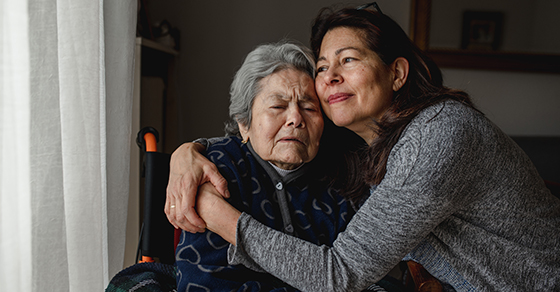If you decide to take in and care for an elderly parent or grandparent, you may be eligible for a tax break as well. Here are some possible tax breaks that you could take advantage of.

1. Medical expenses. If the individual qualifies as your “medical dependent,” and you itemize deductions on your tax return, you can include any medical expenses you incur for the individual along with your own when determining your medical deduction. The test for determining whether an individual qualifies as your “medical dependent” is less stringent than that used to determine whether an individual is your “dependent,” which is discussed below. In general, an individual qualifies as a medical dependent if you provide over 50% of his or her support, including medical costs.
However, bear in mind that medical expenses are deductible only to the extent they exceed 7.5% of your adjusted gross income (AGI).
The costs of qualified long-term care services required by a chronically ill individual and eligible long-term care insurance premiums are included in the definition of deductible medical expenses. There’s an annual cap on the amount of premiums that can be deducted. The cap is based on age, going as high as $5,640 for 2022 for an individual over 70.
2. Filing status. If you aren’t married, you may qualify for “head of household” status by virtue of the individual you’re caring for. You can claim this status if:
- The person you’re caring for lives in your household,
- You cover more than half the household costs,
- The person qualifies as your “dependent,” and
- The person is a relative.
If the person you’re caring for is your parent, the person doesn’t need to live with you, so long as you provide more than half of the person’s household costs and the person qualifies as your dependent. A head of household has a higher standard deduction and lower tax rates than a single filer.
3. Tests for determining whether your loved one is a “dependent.” Dependency exemptions are suspended (or disallowed) for 2018–2025. Even though the dependency exemption is currently suspended, the dependency tests still apply when it comes to determining whether a taxpayer is entitled to various other tax benefits, such as head-of-household filing status.
For an individual to qualify as your “dependent,” the following must be true for the tax year at issue:
- You must provide more than 50% of the individual’s support costs,
- The individual must either live with you or be related,
- The individual must not have gross income in excess of an inflation-adjusted exemption amount,
- The individual can’t file a joint return for the year, and
- The individual must be a U.S. citizen or a resident of the U.S., Canada or Mexico.
4. Dependent care credit. If the cared-for individual qualifies as your dependent, lives with you, and physically or mentally can’t take care of him- or herself, you may qualify for the dependent care credit for costs you incur for the individual’s care to enable you and your spouse to go to work.
Contact your Rudler, PSC advisor at 859-331-1717 if you’d like to further discuss the tax aspects of financially supporting and caring for an elderly relative.w
RUDLER, PSC CPAs and Business Advisors
This week's Rudler Review is presented by Drew Sullivan, Senior Accountant and Jeff Epplen, Shareholder.
If you would like to discuss your particular situation, contact Drew or Jeff at 859-331-1717.


As part of Rudler, PSC's commitment to true proactive client partnerships, we have encouraged our professionals to specialize in their areas of interest, providing clients with specialized knowledge and strategic relationships. Be sure to receive future Rudler Reviews for advice from our experts, sign up today !